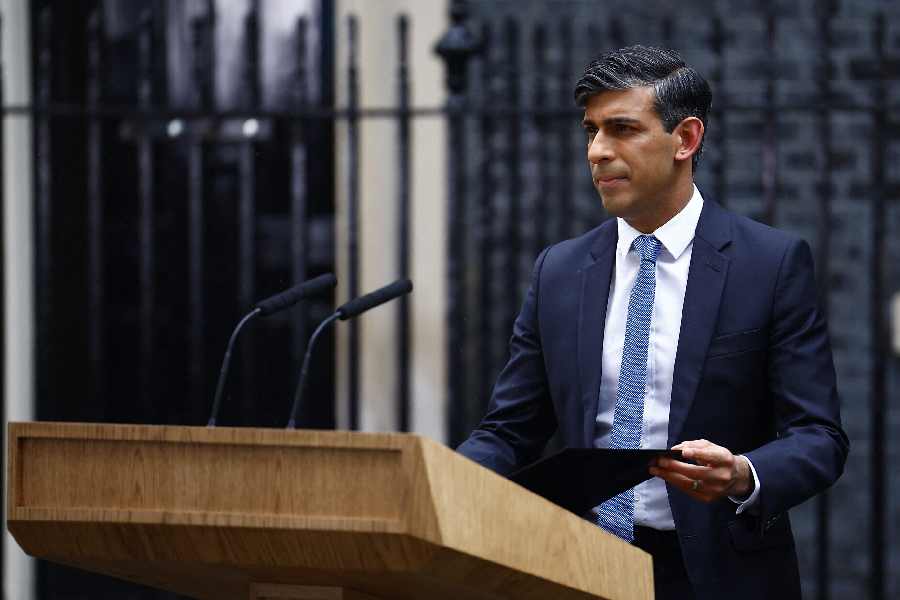Badly lagging in the race to win Britain's election, Prime Minister Rishi Sunak went hunting for votes among robots and staff in a retail distribution centre on Tuesday, kicking off his first campaign stop of the day before 5 a.m. (0400 GMT).
Sunak, who has often looked exhausted as he crossed the country during a six-week campaign, started the penultimate day of campaigning before Thursday's vote in a vast Ocado warehouse in Luton, north of London, watching robots pick items for delivery.
He then donned a high-vis jacket to help pick salad items at the warehouse owned by Ocado, one of Britain's most successful technology businesses, before he met staff over a cup of tea.
He later surprised people at a motorway service station when he joined a queue in McDonald's to buy breakfast for journalists, before he met staff at a large supermarket.
Sunak, who shocked many in his party and the country when he called an election several months earlier than expected, has endured a tough campaign, facing questions from voters and journalists as to why the country is not in better shape.
He was asked by BBC morning television if he agreed with the country's leading pollster that he had no chance of winning the election.
He did not. "I was up at four this morning talking to workers at a distribution facility," he said. "I'm here talking to you. I'll be out till the last moment of this campaign because I think it's a really important choice for the country."
Sunak is due at events throughout Tuesday, including a rally late in the evening.
His Conservatives, in power for 14 years, have lagged Keir Starmer's opposition Labour Party by around 20 points for most of the last year, and in recent weeks Sunak has stepped up the rhetoric on what he says is the danger posed to the country by a Labour government.
In contrast, Ed Davey, leader of the centrist Liberal Democrats, has embarked on a more novel approach to campaigning, falling into a lake, careering down a water slide and doing a bungee jump to grab media attention.
Starmer, likely Britain's next prime minister, has enjoyed a more traditional election campaign, meeting voters at football grounds, in supermarkets and doctors' surgeries, often sticking to the same core message.










